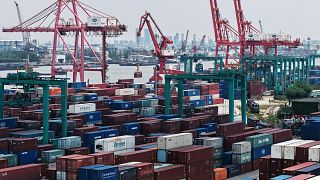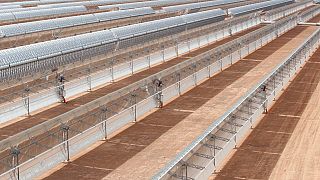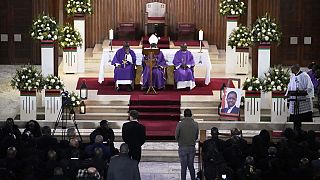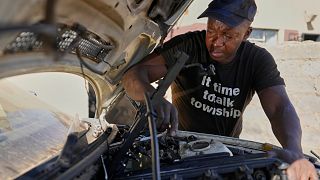South Africa
South Africa unveiled Wednesday new tax incentives to encourage investment in the production of clean power to help the country battle an energy crisis that has sparked worsening blackouts.
Starting March 1, "businesses will be able to reduce their taxable income by 125 percent of the cost of an investment in renewables," Finance Minister Enoch Godongwana said as he presented his annual budget to parliament.
"We will also introduce a new tax incentive for individuals to install rooftop solar panels to reduce pressure on the grid and help ease" the scheduled blackouts, also known as load-shedding, he said.
The continent's most industrialised country has been labouring under a devastating energy shortfall for months, largely due to under-investment in power utility Eskom's ageing and poorly maintained plants.
Earlier this month, President Cyril Ramaphosa announced a national state of disaster and the appointment of an electricity minister to help intensify the response to the crisis.
South Africa has suffered blackouts over the past decade but more recently they have become "more persistent and prolonged" and are wreaking havoc on the economy, in particular the country's freight and logistics network, Godongwana said.
The government had already said last year that it was taking over half of Eskom's debt pile of 400 billion rand ($22 billion).
The bailout for the firm that provides almost all of South Africa's electricity will send national debt soaring to 5.84 trillion rand, or 73.6 percent of GDP in the next three years, according to the treasury.
Servicing this debt will cost around 336 billion rand this year, Godongwana said, meaning the country now spends more money on debt than it does on healthcare, peace and security or social development.
But the government has little room to manoeuvre. The power outages have weighed heavily on South Africa's growth prospects.
'Irresponsible'
The minister said growth was expected to reach just 0.9 percent this year after 2.5 percent in 2022 -- but the country's central bank had last month estimated growth to be as low as 0.3 percent due to the electricity supply crisis.
The country experienced a record 207 days of power outages last year alone, compared to 75 days in 2021, said Godongwana.
"Our economy is facing significant risks," he said.
"The minister sent a strong message that the government is failing to produce energy so it would rather incentivise people to produce their own and welcome more private investment," said political economist Lumkile Mondi.
The largest opposition party, the Democratic Alliance (DA), criticised the Eskom bailout as "irresponsible".
In additional to rolling blackouts, further shocks have threatened the continental heavyweight's prospects of cleaning up its economy such as crime and natural disasters.
Godongwana also announced beefed-up budgets to fight graft and crime in a country ranked among some of the most violent in the world outside war zones.
He set aside funds for the appointment of 5,000 new police trainees per year over the next several years.
The prosecution agency will receive extra funding to start prosecuting individuals implicated in the sweeping investigation that revealed a web of well-orchestrated state graft under former president Jacob Zuma.













01:04
South Africa: ANC partner quits key govt initiative as new spat hits coalition
01:37
South Africa calls for peaceful resolution to Israel-Iran conflict
01:29
Ramaphosa concludes G7 summit visit, no meeting with Trump
00:48
Cyril Ramaphosa arrives in Canada for G7 summit
01:55
South African president visits flood sites with death toll at 78
Go to video
Second round: Ramaphosa faces Trump again after Oval Office fallout